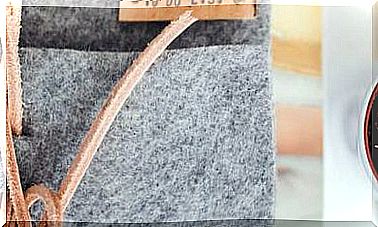Avoid Dampness At Home With These 5 Practices
Showering, cooking or hanging clothes inside the house can cause condensation and the appearance of mold that compromises health. Learn to avoid it.

The ideal for health is to maintain the humidity of the interior spaces around 50%. It is the best for the good condition of the respiratory tract and the skin. You can measure the humidity with a thermohygrometer. If it exceeds 60% you have to improve ventilation or use a dehumidifier. With the five tips that we show you below, you can keep humidity at bay.
1. Ventilate well
Although the house is in perfect condition, when humidity occurs in the house – when showering, cooking or hanging clothes inside – if it becomes concentrated, it gives rise to condensation and the appearance of molds. Ventilating for 10-15 minutes a day is the most efficient way to avoid it, and to prevent health disorders.
2. Windows with thermal bridge and insulating walls
Choose enclosures of the house – windows, French windows, exterior doors – with thermal bridge. This allows heat to be better transmitted through the material. In this way, condensation is avoided on the interior profiles, which usually appear when the exterior temperature is very low and the interior relative humidity is high.
They can also appear when the enclosures are renewed if the wall is equipped with good insulation: the difference in temperature between the wall and the new enclosure produces condensation and mold.
3. Take care of the north facing walls
- Bedrooms. If the wall faces the north face, check that it is well insulated to avoid the contrast between the interior and exterior temperatures, and with it, condensation.
- Wardrobe. If it is embedded in the north wall, without good insulation, molds appear. They cannot be seen, and are a cause for asthma or allergies.
4. Habits that help
- Leave the extractor running. In bathrooms that do not have natural ventilation, turning on the air extractor allows you to absorb the water vapor that is generated during the shower, thus avoiding humidity problems.
- Closed pots. To prevent water vapor from building up in the kitchen, cover the pots during long boiling times for soups and stews, and turn on the extractor.
- Hang clothes outside. Avoid hanging wet clothes inside the house, better in the gallery, on the terrace or, failing that, in a room open to the outside. Especially in winter, when the weather is not good, the habit of laying indoors is usually the reason for condensation that damages the respiratory system.
5. Do not miss the plants
Plants in indoor spaces favor the regulation of humidity in the air.
- Ivy is very hardy and likes light. It helps regulate the humidity of the air and thus prevents mold from forming. Absorbs formaldehyde from chipboard furniture.
- Potus require little maintenance. They also help regulate the humidity of the air and clean it of formaldehyde and benzene, present in furniture, plastics and detergents.









